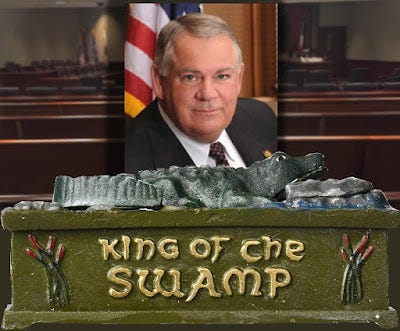Ralston’s Time Has Come
Once upon a time there was a country whose political engine ran on a fuel of virtue, and whose moving members, the politicians, were lubricated by a universal and heart-felt obligation to avoid even the faintest appearance of impropriety. That was America long ago. Judging people in their times, arguably, George Washington was such a political adherent, his thoughts and actions the result of an intrinsic personal desire to avoid public indecency or shame, or even the appearance of improper motives, as were many of his contemporaries. There have been others along the way, who have chosen virtue over personal gain and power, some we might agree on and some we might not.
Either way, in modern times, notably commencing in the early 20th century, the American political engine was covertly altered, modified to run on a different fuel resulting in policies other than those inherent personal virtue might select. It was in those days that a financial class cemented control of the American government, at virtually every level, wresting control from the American people by deceitfully and unaccountably regulating when, to whom and how new American currency could and should be issued. Handed the franchise to control the issuance of money, in 1913 the private operators of the Federal Reserve began a process of morphing the political policy-making engine we know today from one designed to run on a fuel of virtue and public-mindedness to one that runs on money, a commodity in practically infinite supply to the operators of that hidden system.
And as time went by, speaking generally, rather than the “new and improved” political engine’s parts lubricated by inherent desires to avoid the first appearance of impropriety, a new class of politician, replacing the older members of the American political engine, became increasingly greased by the notion that one’s lack of virtue in the pursuit of personal gain could be aptly defended by invoking a exculpatory doctrine we might call the “plausible deniability defense,” which could be used anytime a politician might be noticed violating the public trust. And because an adherence to such a doctrine began to oil the entire American political machine, one guilty politician assailed by those remaining steadfastly dedicated to promoting virtue as our government’s guiding influence, could rest comforted, dutifully defended by others whose similar faults and vices might someday require the same favor. Examples of this archetype are too numerous to mention. But were we to cite a few, we might invoke names such as Clinton, Shift, Lynch, Brennan, entire Democrat US House Committee panels...I could easily run out of space.
Now operating within this newfangled political engine redesign, certain integral members inevitably serve as rainmakers for others, conduits for funds, without which the controllers of American currency would have no means available to add monetary fuel to run the political engine. We can know these rainmakers because they are the ones most often eagerly elected by peers to lead various legislative bodies, federal as well as state.
One common office for political rainmakers to occupy is that of, “Speaker of the House.” That agent, normally one long-since compromised regarding any personal dedication to virtuous purposes, once elected to that high post seemingly enjoys the power of position in ways normal hardworking Americans do not have time in their busy lives to consider, much less understand. Fortunately, we have pundits to help us grasp political truths that practical considerations of time will not allow.

Enter yet another such individual, who via the means I cite became Georgia’s Speaker of the House, one David Ralston, an actor/agent who recently achieved a highpoint of notoriety for allegedly violating rules of virtue in the legal defense of various questionable characters charged with criminally harming others in his home district. We see evidence that Ralston’s chosen mode of defending numerous not-yet-proven-guilty individuals is simply to assert he is too busy with the work of the people to attend the court proceedings necessary to settle the cases. And some of these cases reportedly persist for five, six or seven years. After that time even the best witness’ memories become impeachable. To the untrained eye, it does seem that matters such as I describe could be adjudicated before a next jubilee, even by the busiest of attorneys. But it is precisely that fact, that the judging public is not briefed in the incredulity of Ralston’s justifications, that makes the Speaker’s denial of wrong-doing at least plausible for them to consider.
Of course, most of us who have been watching the workings of the American political engine for a substantial while understand what is happening here. Obviously, Speaker Ralston values the power and personal gain opportunities of his office over any feeling of personal obligation to avoid the appearance of impropriety. Knowing that, any felon charged with serious, yet bailable offenses in Ralston’s home district need only contract the Speaker to become his or her defense attorney and effectively avoid prosecution. Once the Speaker takes a case, utilizing an arcane regulation written over a century ago to justify his actions, Ralston could end up postponing court proceedings for his clients for as long as he serves his position in the Georgia legislature, or as long as his clients may live, whichever stretch might survive the other.
What I describe is simply Georgia’s own backyard political swamp. It is time for Georgia’s political engine to revert to America’s founding design, placing virtue and public-mindedness before political gain and power. It is time for Speaker Ralston to go.



